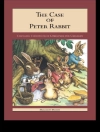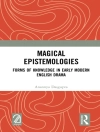This edition includes a modern introduction and a list of suggested further reading.
The Praise of Folly is the most enduring and popular work of one of the greatest Renaissance humanists, Desiderius Erasmus of Rotterdam. Immensely popular in its own day, the work is a witty and often biting satire that offers an ironic appreciation of human vice and frivolity.
The Praise of Folly, however, is not only an entertaining indictment of social mores, but also a moving declaration of Erasmus’ Christian idealism. Although it is a product of the sixteenth century,
The Praise of Folly remains to this day an insightful and relevant work of moral philosophy and social criticism.
About the author
The second illegitimate son of a priest and of a doctor’s daughter,
Erasmus was born in Rotterdam around 1467. His parents died while he was young, and he had little choice but to join a monastery, where ultimately his literary talent was revealed. His first trip to England was momentous: he met several leading scholars and churchmen, notably the theologians John Colet and Thomas More, who became his life-long friends and who influenced his work.












